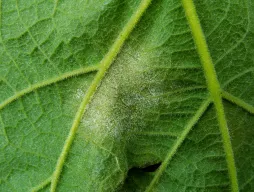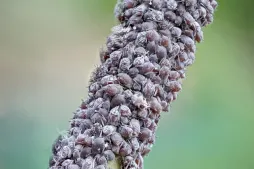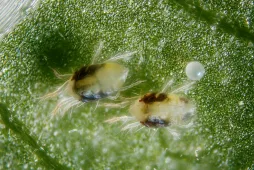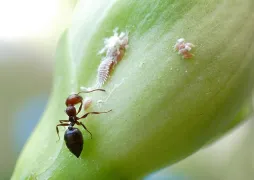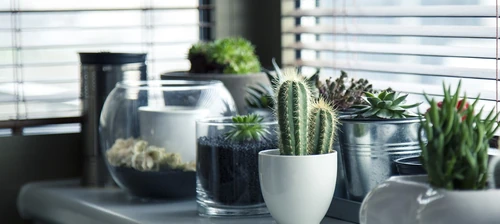Guzmania conifera, a pinecone flower
Guzmania conifera grows in high-altitude forests in Ecuador and Peru. A member of the Bromeliaceae family, it has a unique, multicolored pinecone-like bloom.
How to recognize Guzmania conifera?
Much taller than guzmania lingulata, Guzmania conifera can reach a meter in height. It is a perennial, epiphytic or terrestrial plant with an upright habit.
Guzmania conifera has no visible stem. Its leaves grow in a rosette, forming a central reservoir.
The dark green blades measure up to 80 centimetres long and eight centimetres wide.
When the plant reaches maturity, it flowers. A flowering spike rises from the heart of the leaf rosette. The lower part of the stem is covered with green bracts. The top is crowned bya pinecone-shaped inflorescence. This consists of triangular red bracts with yellow tips and yellowish flowers. The flowers live only a few days, while the bracts last several weeks.
Guzmania conifera is harmless. The plant is not toxic to animals or humans.
Our maintenance tips
Guzmania conifera is a monocapric plant. Even with the best care, it dies after flowering. Consider taking cuttings to propagate it!
Watering
Allow potting soil to dry on the surface (at least 3 cm). Water the substrate with rainwater. It should be damp but not soggy.
In summer, when the temperature is above 20°C, pour a few drops of water into the reservoir at the heart of the rosette. Empty it and replace the water every week to keep it clean.
Don't forget to remove any stagnant water from the cup or pot cover.
Spray
Spray foliage with rainwater at room temperature. This misting helps combat pests and improves hygrometry.
Fertilization
You can stimulate the development of your plant during its growth phase, in spring and summer, with fertilizer.
Add a flowering plant fertilizer to the watering water once a month.
Complete with a foliar fertilizer for bromeliads to be sprayed on the foliage.
Fertilizer stimulates plant growth. But an overdose can damage their leaves. Read the manufacturer's instructions carefully before fertilizing your Guzmania conifera.
Prune
When flowering is over, cut off wilted bracts with a clean, sharp tool. This stimulates the production of new shoots.
Cutting
Wait until the end of flowering to propagate your Guzmania conifera.
Wait until the shoots have started to develop their own root system before removing them. When they are at least a third of the size of the mother plant, you can separate them. You can do this by hand, simply by pulling on the rosette or using a clean, sharp tool.
Obtain a pot with a hole five centimetres in diameter. Fill it with potting soil for orchids or bromeliads. Plant your Guzmania conifera in the center. Press down and water.
Diseases / Threats
Information
| Family | Bromeliads - Bromeliaceae |
| Type | Guzmania - Guzmania |
| Species | Guzmania conifera - Guzmania conifera |
| Lifecycle | Perennial |
| Foliage | Evergreen |
| Exposure | |
| Substrats | |
| Planting method |
In pots |
| Categories | |
| Tags |
Flowery Fritillary Soiffarde |
| Origin |
South America |
| Hardiness (USDA) | 12a |
| Leaf color |
|
| Flower colors |
|
Discover plants from the same family

Guzmania lingulata
Discover
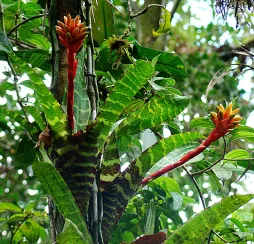
Guzmania musaica
Discover

Guzmania sanguinea
Discover

Guzmania zahnii
Discover











